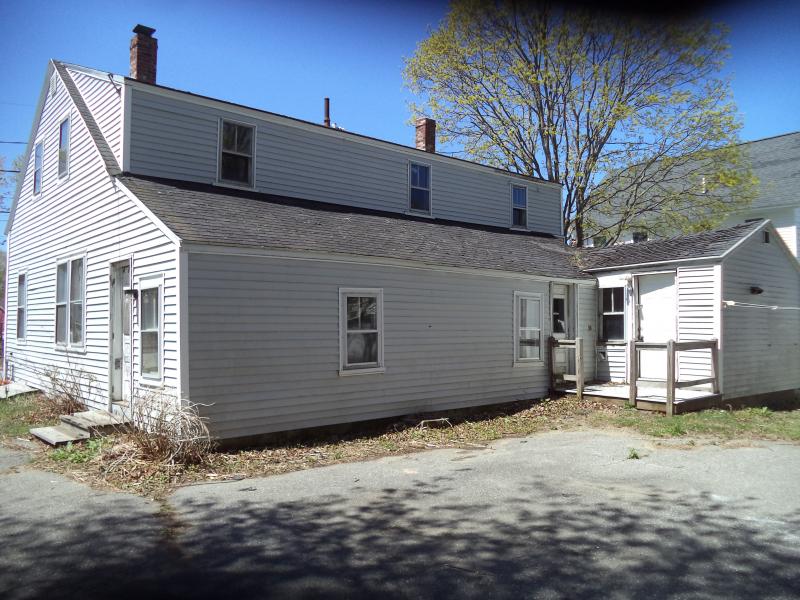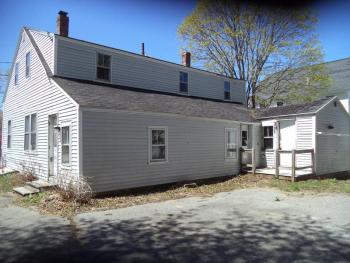Rockland Council reconsiders 13 State Street, questions demolition proposal
ROCKLAND – As Rockland City Council members prepare to vote June 11 on whether to use city funds for demolition of 13 State Street, several community members have expressed interest in purchasing the property, according to City Manager Tom Luttrell. However, the serious buyers willing to work with the bank have since backed out, he said.
Several months ago, Rockland attempted to “raise the heat on the fire,” as Councilor Lisa Westkaemper said, by pushing the property owner to deal with the structure. The City created a timeline for such reconveyance, while adding the possibility of City-issued demolition.
However, with the previous owner forced out years ago by bank pre-foreclosure that continues today, and with the bank claiming no ownership of the structure yet continuing to pay the property taxes, the responsibility continues to move in three different directions.
Council members postponed their vote in May while awaiting further response from the bank, but also because some members believe that all structures are salvageable.
“I don’t like the way this is playing out,” Councilor Adam Ackor said during the May 14 agenda-setting meeting while proposing the postponement. “I certainly don’t want to increase the amount of hazard this property may pose. But I think it’s worth waiting another month.”
Mayor Geiger said that during the foreclosure wave of 2008 banks started to foreclose on houses, but didn’t want to admit the losses on their balance accounts.
“And so they walked away from those houses,” she said. “They didn’t maintain them. They let them rot. Cities around the country responded to that by setting a clock, so when the foreclosure happened, the banks had 18 months to do something with the property. The banks responded by figuring out a legal game, or a legal motion that allowed them then to go far enough in the foreclosure processes, remove the current owner, padlock the doors, but not actually complete it, so they can say they weren’t the owner, and the clock never starts ticking.”
Because of that, according to Geiger, the State of Maine made two proposals:
1.) Allow cities to declare a building a dangerous building and to tear it down, or request that the owner tear it down; and
2.) Declare something an abandoned building with the same application.
“These situations are really difficult for the people who live in these neighborhoods when they have a house like this, which is essentially a blight on their neighborhood,” Ackor said. “It brings down people’s property values. It causes problems with any number of things. I think it’s a shame that the bank hasn’t stepped forward to do the right thing.”
On top of that, Ackor and Councilors Westkaemper and Ed Glaser also question to necessity of demolition.
Though Glaser could not remember how he’d voted last autumn, he said during the May 14 meeting that he’s usually against the city being the one to demolish a building.
“There’s always the possibility it can be salvaged,” Glaser said. “I think it still keeps more value being a building there for whoever currently owns it.”
City Manager Tom Luttrell said that if the city demolishes the building, and then the bank foreclosed on the property, then the city would have to sue the bank to recover financial losses acquired in the demolition.
“We would get our money back eventually, but it wouldn’t be automatically through their foreclosure,” he said.
Ackor said: “I respect the opinion of the code office, and I normally wouldn’t have any qualms with taking this building down for the reasons they’ve outlined. But in this situation I think the city ends up holding the bag. And I don’t think it’s right for the taxpayer to hold the bag for a bank who is acting irresponsibly.”
See our previous article: 13 State Street ownership muddies Rockland demolition intent
Sarah Thompson can be reached at news@penbaypilot.com
Event Date
Address
United States


























